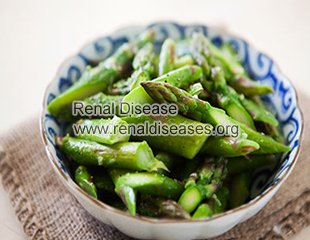Whatsapp: +8615512139310
- Email us:
 To prevent further deterioration of kidney function, Chronic Kidney Disease patients are suggested to follow a scientific diet. Well, can they eat asparagus?
To prevent further deterioration of kidney function, Chronic Kidney Disease patients are suggested to follow a scientific diet. Well, can they eat asparagus?
Due to it’s high content of nutritions, asparagus is regarded as the “king of vegetables” in the international market. According to the statistics, it is loaded with multiple amino acids, vitamins, minerals, trace elements, etc. And its benefits are mainly summarized like this:
Anti-cancer
On the one hand, the selenium present in asparagus can help prevent the growth and proliferation of cancer cells, on the other hand, it can help raise the resistance of the body.
Prevent hyperlipidemia and cardiovascular diseases
Experiments proved that asparagus can help reduce blood lipid level to a large degree. Featured by low-sugar, low-fat and high-fiber, eating it regularly can also help prevent hyperlipidemia and cardiovascular diseases.
Except for the above benefits, eating it in moderation can also help treat malnutrition, anemia, constipation, high blood pressure, heart disease, obesity, swelling and urinary calculi and so on effectively.
From the above analysis, we can come to know that chronic kidney disease patients can eat asparagus. However, as the condition varies, the specific amount should be different. What’ more, there are also some cautions, such as, patients with gout should limit it’s intake, the asparagus should not be eaten raw.
To be honest, even if asparagus has many benefits for CKD patients, this food alone is not enough to control the condition. Simply speaking, their diet should be low-salt, low-protein, high-fiber. If lab tests show high potassium level or high phosphorus level, the intake of these substances should also be restricted. If you happen to be a person with CKD and want to get an individualized dietary advice, please feel free to click the Online Doctor now!